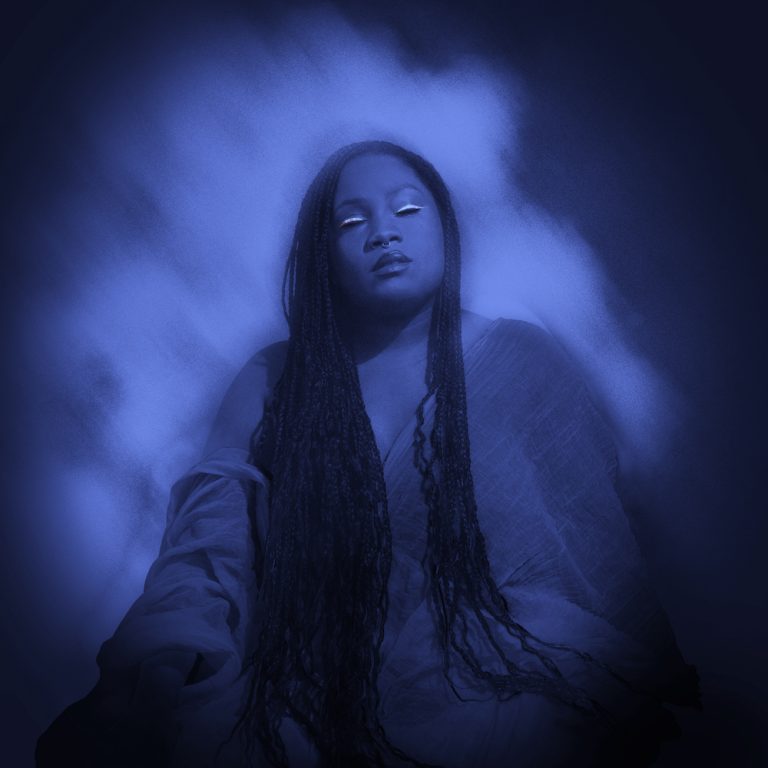End-of-days scenarios play on a loop and here’s a harpist to soundtrack the Book of Revelations. Actually, of all the themes underlying Lovegaze – people vs. nature, trust, interpersonal conflicts – Nailah Hunter leaves the heavens out of it. Gods and omnipotents have been told not to bother: We got this.
Since she began releasing music five years ago, Hunter has channeled her preferred instrument into predominantly vocal-free, ambient recordings. Tabbed by Pitchfork in 2022 among a handful of artists ‘rethinking’ harp music, Hunter is not a case of channeling Joanna Newsom-style freak-folk fairydom as much as avoiding yoga-core new ageism. Aside from dramatically swept chords or eccentric/violent plucking, conventional harp-playing demands quiet. Her studies have yielded uses both as a counter-rhythmic device as well as imitating arpeggiated guitar notes.
However, Hunter’s defining stroke on Lovegaze involves not her harp, but her voice. Used sparingly in the past, her choice to sing on the album dovetails with its thematic elements. She sits already at the crossroads of acoustic and digital instrumentation. But the need to illuminate our tendency toward tragedy–believing ourselves immortal or at least aspiring to be–called for lyrics. Opting to narrate might have been a straightforward decision, although who would do the narrating was something different.
Electronic and ambient composers will handpick singers who come closest to how they idealise themselves in their own ears – usually when incapable of holding a note. Yet, for Lovegaze, she’s taken the responsibility. It’s not a terrible risk; Hunter studied voice at CalArts at Santa Clarita in California having grown up singing in her father’s choirs. In the scope of the past 30 years – iconic pipes from downtempo stars like Martina Topley-Bird and Beth Gibbons to ethereal angels like Elisabeth Fraser to the brassiest of EDM heroines – Hunter’s voice is remarkably human. It radiates focus and effort instead of otherworldliness. It’s like Cat Power on Cassius’ “Feel Like Me” with a touch of Dionne Warwick. Anything more polished would border on formula.
“Strange Delights” opens the album with piano and vocal cushioned by reverb, which provides both a soft-landing for her voice plus the means to usher in a memory. She and a companion were once in thrall to nature’s beauty (“Swaying in the night / guardians of the light / wanderers on the Nile”), but darkness looms. Hunter’s voice commands attention with flashes of regret. The switch to “Through The Din” introduces sinister, trip-hop tones, evocative of Massive Attack’s Mezzanine as accusations are traded and the bubble bursts. The lead single, “Finding Mirrors”, galvanises the opening tracks and reveals the album’s incremental turns and gentle shades.
The title track and “000” slightly un-do “Finding Mirrors” while establishing that ambience will be a relative term throughout. At no point does Lovegaze feel improvised or unfinished, yet its moods are unremittingly temporary. “Bleed” incorporates dub alongside Hunter’s most conventional vocal on the album, then “Adorned” strips to ambient basics so Hunter can unfurl her best Betty Carter. The album inhales, exhales, flexes and relaxes. Gentle fluctuations comprise its binding force, history guided by emotions as much as by gusts of wind. Lovegaze isn’t critical of the human struggle; it’s enchanted by it.

